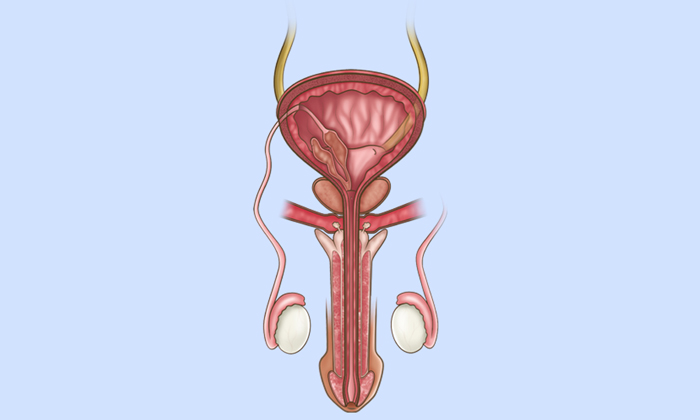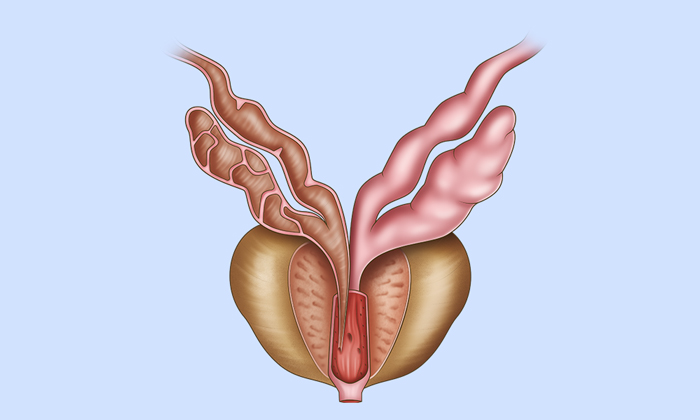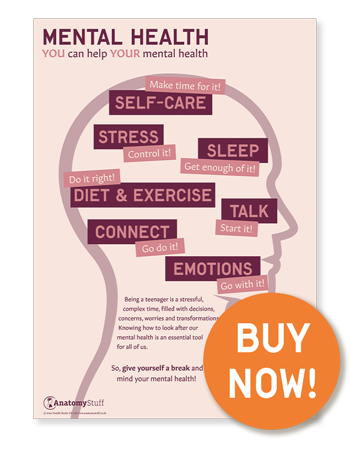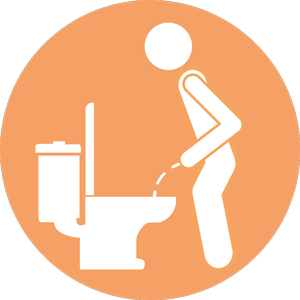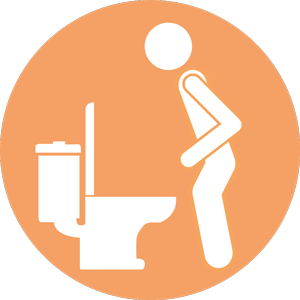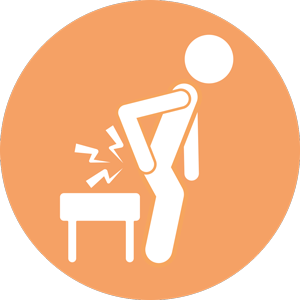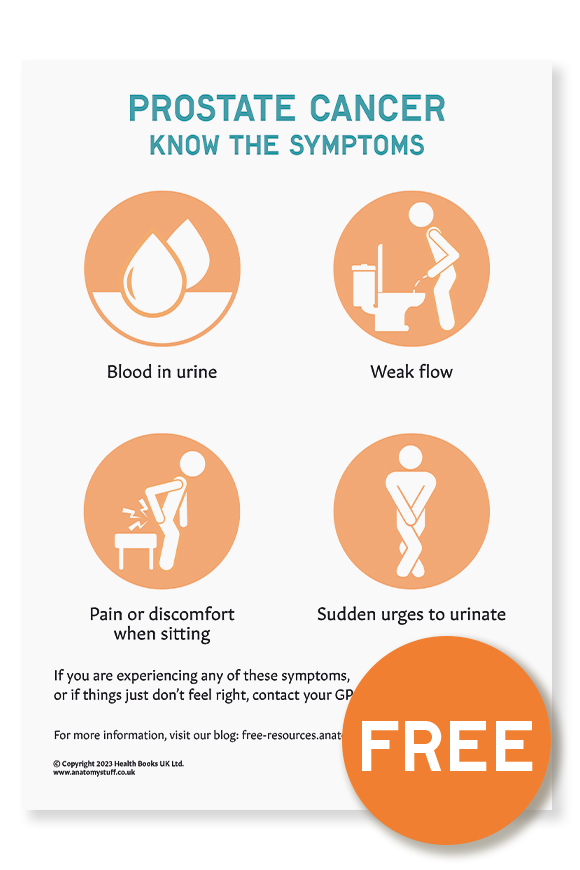Welcome to our comprehensive Men's Health Resources and Products page. Here, you'll find a wealth of information, expert advice, and a curated selection of products designed to support and improve men's health. Whether you're looking for wellness tips, fitness guidance, or quality health products, you're in the right place.
Reproductive Anatomy
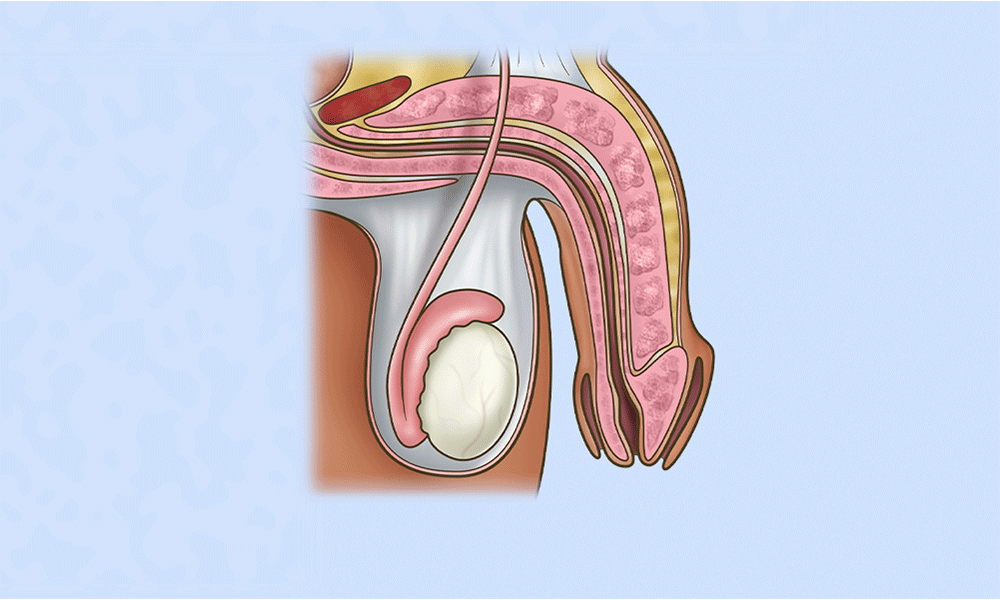
Men's reproductive anatomy includes the testes, which produce sperm and testosterone, and the epididymis, where sperm mature. Sperm travels through the vas deferens to the prostate gland, which secretes seminal fluid. The penis facilitates intercourse and urination.
The health of men's reproductive anatomy is crucial for overall well-being. Regular check-ups can help detect issues like testicular cancer or prostate problems early. A healthy lifestyle, including a balanced diet and exercise, can support reproductive health and sexual function.
The male reproductive system is responsible for producing, maintaining and transporting sperm which fertilises the female oocyte (also known as an egg) and forms a zygote which contains all the genetic information required to make a baby.
The prostate gland plays an important role in the male reproductive system, responsible for releasing semen alongside fluid from other glands and the testicles. The fluid produced by the prostate gland ensures that sperm cells are transported safely for fertilisation.
Mental Health & Wellbeing
Men's mental health and wellbeing are critical aspects of overall health. Societal pressures often discourage men from seeking help, making it crucial to promote open discussions. Encouraging mindfulness, stress management, and seeking professional support can enhance emotional resilience, fostering a healthier and more balanced life for men.
Focusing on mental health is vital for men, as it enables emotional well-being, healthier relationships, and effective coping with life's challenges. Prioritizing mental health contributes to a more fulfilling and balanced life.
Testicle Health
Men's testicle health is crucial for reproductive function and overall well-being. Self-exams can help detect lumps or irregularities, potentially indicating testicular cancer. Protecting the scrotum from injuries and maintaining a healthy lifestyle, including regular exercise and a balanced diet, can support testicle health and hormonal balance.
Regular testicle self-exams are vital for detecting abnormalities early, potentially identifying testicular cancer when it's most treatable. Early detection can improve outcomes and save lives. Here are some easy steps you can follow...

Elevate one leg on a chair or the side of a bath.

Cup your scrotum in the palm of your hand and feel the weight and shape of each testicle.
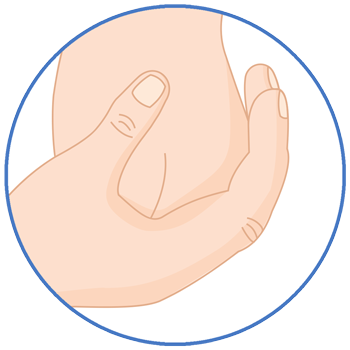
Roll the testicle between your thumb and fingers to explore for lumps.

Elevate the other leg and repeat the check on the other testicle.

Compare both testicles in the mirror. If you notice a swelling or lump, contact your doctor immediately.
Discover this useful and informative Testicular Self-Examination Leaflet designed for effective patient education.
Our leaflet contains easy-to-understand instructions about how to perform a self-examination of the testicles, including what to do if any abnormalities are discovered.
These detailed pictures help guide the self-examination, ensuring patients fully understand the steps.
Discover more of our Testicular Anatomy and Health products.
Prostate Health
The prostate is a walnut-sized gland located below the bladder in men. It surrounds the urethra and plays a role in producing seminal fluid for ejaculation.
Prostate health is critical for men's well-being. Regular check-ups, including prostate-specific antigen (PSA) tests and digital rectal exams, can help detect prostate problems like cancer or enlargement. Early detection and timely treatment can significantly improve outcomes and quality of life, emphasizing the importance of being checked regularly.
The prostate has four zones: peripheral, central, transitional, and anterior fibromuscular. Each zone plays a distinct role in prostate function and potential health issues.
Our Zones of the Prostate informative video illustrates the different regions of the prostate gland, aiding in understanding its anatomy, function, and potential health concerns such as cancer.
Prostate Cancer
Prostate cancer is a prevalent cancer in men, often developing slowly. Symptoms may include difficulty urinating, blood in urine or semen, and discomfort in the pelvic area.
Early detection through regular screenings like PSA tests and digital rectal exams is vital for effective treatment and improved outcomes.
Know the Symptoms
Checking for prostate cancer is crucial because early detection significantly increases the chances of successful treatment.
Regular screenings allow healthcare providers to identify cancer at an early stage when it is most treatable, potentially saving lives and improving the quality of life for those diagnosed with the disease.
Teen Health
Teen health is a critical aspect of adolescent well-being. It encompasses physical, emotional, and social aspects. It's important for boys to maintain a balanced diet, regular exercise, and hygiene practices. Educating them about mental health, self-esteem, and respectful relationships is essential. Routine check-ups and vaccinations ensure physical health, and open communication with parents or trusted adults can help address various challenges faced during adolescence.
We're providing the tools to help teens take charge of their health –
so they can have the confidence to make the best health choices.
